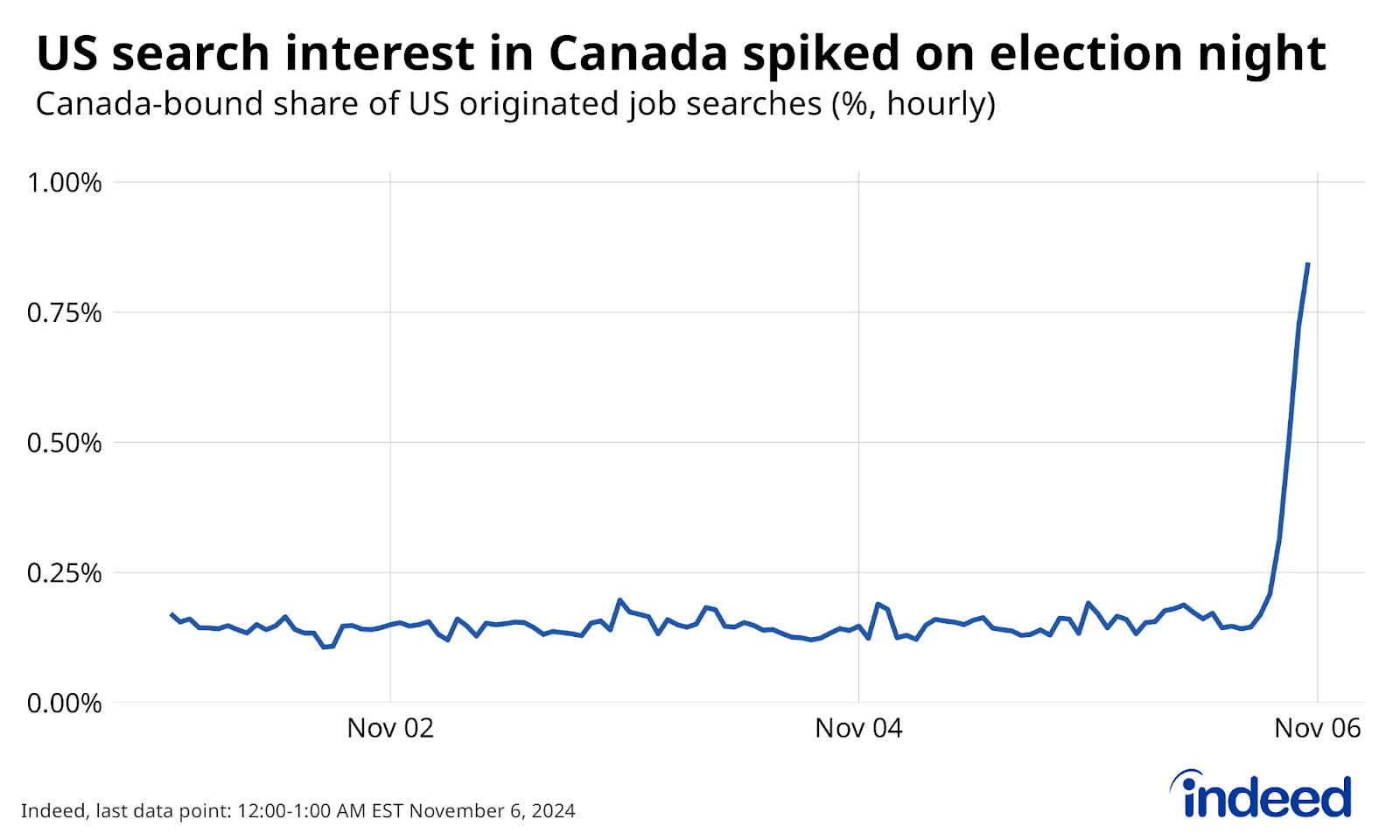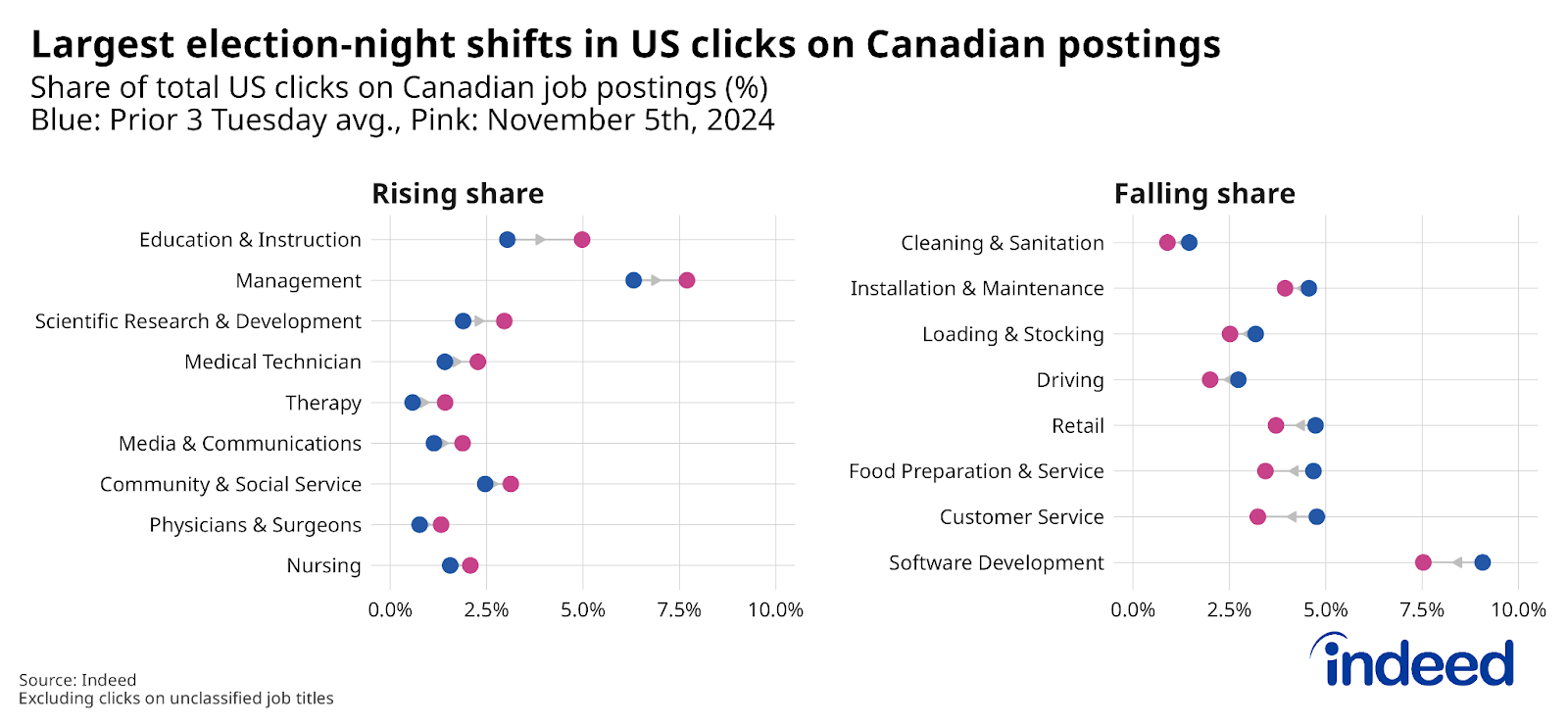
How does increase in job searches compare to 2016 election?

On the night Donald Trump made history by winning the US presidency once more, there was a spike in the number of US-based job-seekers seeking employment in Canada, according to a report.
The share of US job seeker searches on Indeed bound for Canada spiked to 0.85 per cent of total US searches by the end of the night on Nov. 5, 2024.
That happened after it bounced between 0.1 per cent and 0.2 per cent of total searches over the weeks leading up to the election.

Compared to the prior three Tuesdays, on Nov. 5, a greater share of US clicks on Canadian postings went to occupations involved in education, management, scientific research and development, and healthcare-related jobs. However, clicks were down in other occupations.

But the spike could be temporary, said Indeed.
“One night doesn't make a trend: US interest in Canadian jobs would have to remain elevated for some period to signify a meaningful change in migration intentions.”
Seventy per cent of managers in the United States are concerned that political tensions and conflicts in the workplace will escalate after the polls, according to a new survey.
While there was a noticeable spike in the number of US-based job seekers looking for jobs in Canada after Trump won the election, the 2024 data seems mild compared to when Trump first became president, according to Indeed.
This year’s jump was much less dramatic than election night 2016, when the Canada-bound share of total US job seeker searches hit 5% around midnight of Nov. 8, 2016.
With this year’s election results, Trump – who was the US’s 45th president – also became its 47th president. He is only the second U.S. president in history to lose a reelection bid and then be elected again.
The first one was Grover Cleveland, who was the US’s 22nd and 24th president. Cleveland held the post from 1885 to 1889 before losing to Benjamin Harrison. Cleveland assumed office once more in 1893 and served until 1897.